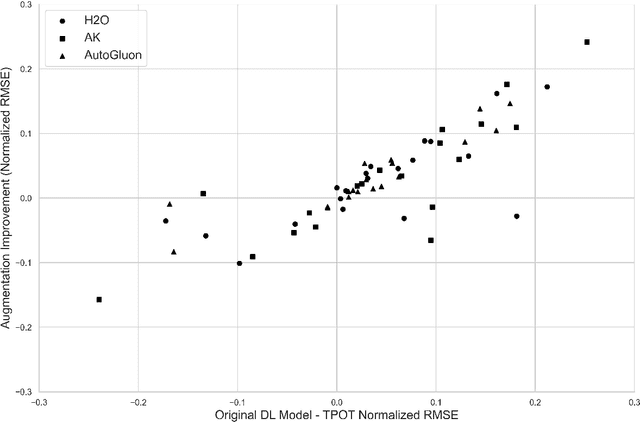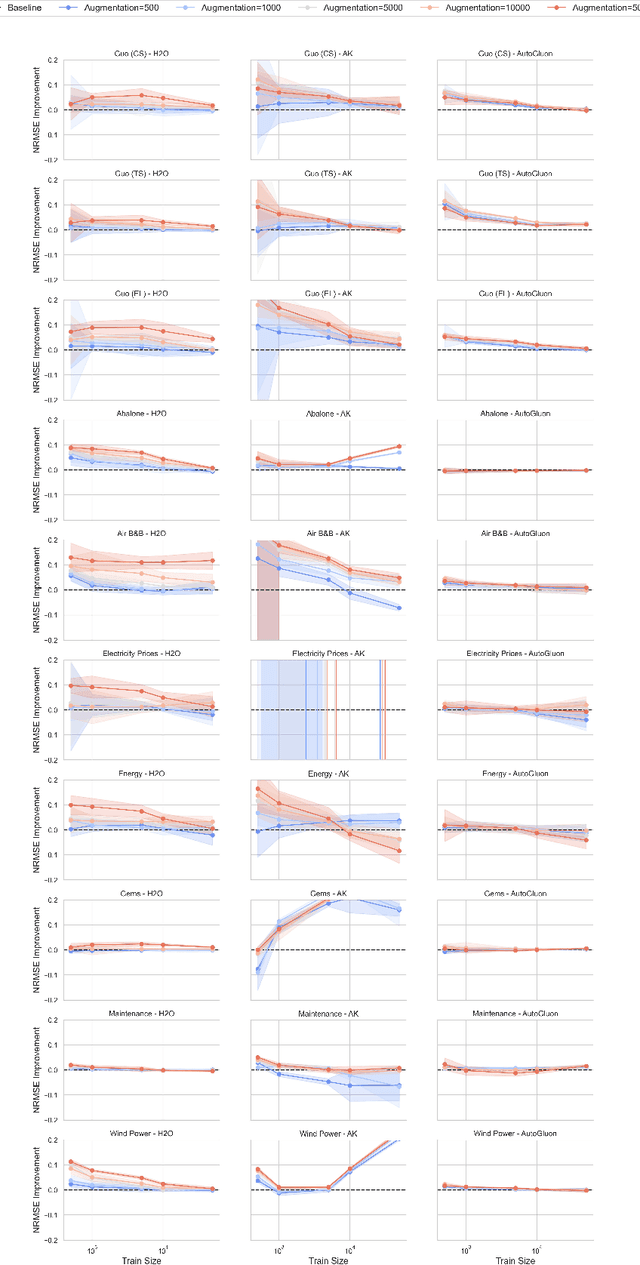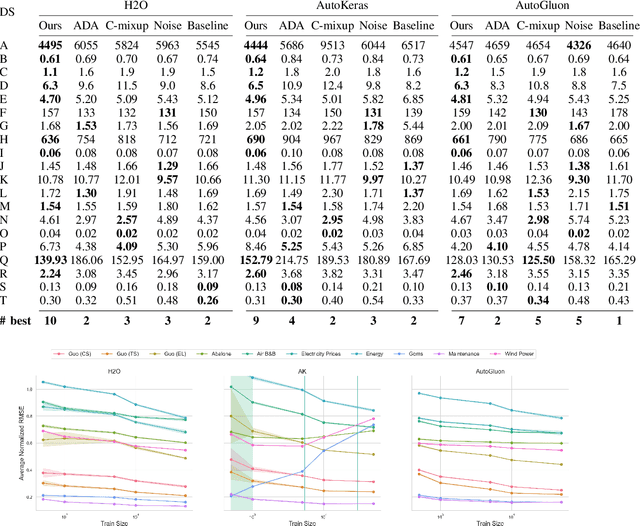Data Augmentation for Deep Learning Regression Tasks by Machine Learning Models
Paper and Code
Jan 07, 2025



Deep learning (DL) models have gained prominence in domains such as computer vision and natural language processing but remain underutilized for regression tasks involving tabular data. In these cases, traditional machine learning (ML) models often outperform DL models. In this study, we propose and evaluate various data augmentation (DA) techniques to improve the performance of DL models for tabular data regression tasks. We compare the performance gain of Neural Networks by different DA strategies ranging from a naive method of duplicating existing observations and adding noise to a more sophisticated DA strategy that preserves the underlying statistical relationship in the data. Our analysis demonstrates that the advanced DA method significantly improves DL model performance across multiple datasets and regression tasks, resulting in an average performance increase of over 10\% compared to baseline models without augmentation. The efficacy of these DA strategies was rigorously validated across 30 distinct datasets, with multiple iterations and evaluations using three different automated deep learning (AutoDL) frameworks: AutoKeras, H2O, and AutoGluon. This study demonstrates that by leveraging advanced DA techniques, DL models can realize their full potential in regression tasks, thereby contributing to broader adoption and enhanced performance in practical applications.
 Add to Chrome
Add to Chrome Add to Firefox
Add to Firefox Add to Edge
Add to Edge